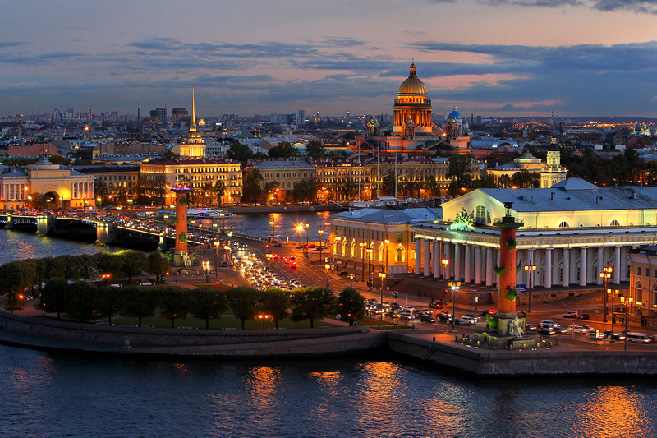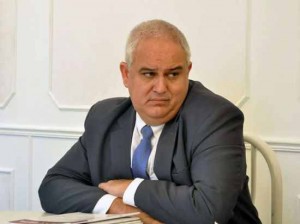
Cuba will reopen consulate in Russia’s second city
Confirmation that Cuba will reopen a consulate and travel office in St. Petersburg, Russia’s second city, was issued Wednesday (Dec. 10) in that city by its mayor, Georgiy Poltavchenko, and Cuban Ambassador Emilio Lozada García.
The negotiations had been ongoing for months. (For background in Progreso Weekly, click here.)

A Cuban consulate in St. Petersburg — the former Leningrad — closed down when the Soviet Union ceased to exist in December 1991. Cuba has a consulate in Moscow, in the same building as its embassy.
The confirmation came during a visit to Mayor Poltavchenko — who is also the region’s governor — by Cuba’s Culture Minister, Julio González Toledo, who accompanied Ambassador Lozada.
Although no date for the reopening was announced, Lozada said that “as a preliminary step before opening the Consulate, we plan to open an office of Havanatur [the state-run travel agency] and start daily direct flights to Havana and Varadero.”
Three flights a day would go to each Cuban destination, Lozada said. He did not say what airline or airlines would provide service, but travel between Moscow and Havana is currently provided by Aeroflot, Cubana de Aviación, KLM, Air France and Air Europa.
“I welcome these plans,” commented Poltavchenko, who seemed eager to firm up relations with Cuba. “Our greatest interest is the exchange with the cities of Santiago de Cuba and Havana,” he added.
Santiago de Cuba has been St. Petersburg’s sister city since 1984.
The mayor and the ambassador agreed that the most promising areas of cooperation are tourism, culture, education and heritage preservation.
According to Poltavchenko, an added benefit of direct air travel between St. Petersburg and Havana is “the diversification of food production from Cuba.” Because of a European Union embargo on certain foods, Russia is importing fruit, vegetables and meats from Latin American countries.
(For background on this topic, click here, here and here.)
In terms of cultural exchange, Minister González Toledo expressed interest in Russian technical advice and support for the conservation and restoration of historic monuments and buildings in Cuba. St. Petersburg, known as Russia’s cultural capital, has a reputation for its skillful and artistic preservation and restoration of historic buildings.
González Toledo also proposed opening a House of Russian Culture in Havana. The proposal was enthusiastically endorsed by Mayor Poltavchenko, who suggested organizing a Days of St. Petersburg festival in Havana or Santiago de Cuba.

